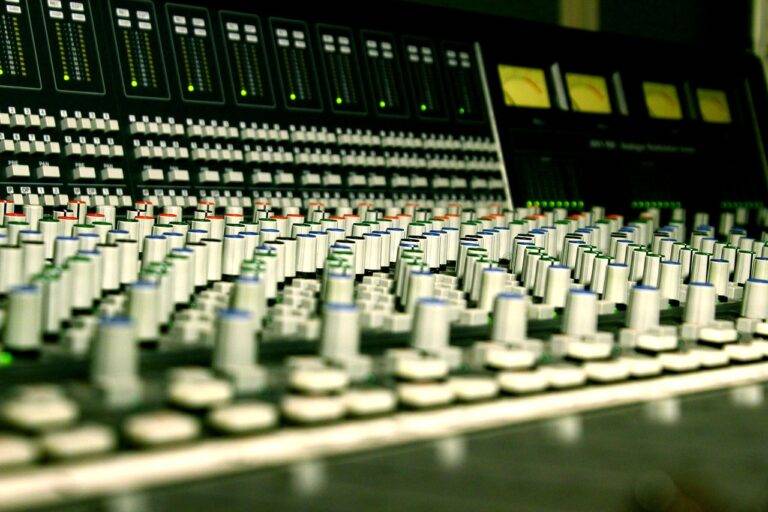Tech for Water Conservation: Innovative Solutions
Water scarcity is becoming an increasingly pressing issue around the world, with many regions facing serious challenges in terms of access to clean and safe water. In the face of this crisis, technology has emerged as a powerful tool for water conservation, offering innovative solutions that can help us better manage and preserve this vital resource. From smart irrigation systems to advanced water monitoring technologies, there is a wide range of tech solutions that are making a significant impact on water conservation efforts. In this article, we will explore some of the most innovative technologies being used to address water scarcity and promote sustainable water management.
Smart Irrigation Systems
One of the most promising technologies for water conservation in agriculture is smart irrigation systems. These systems use sensors, weather data, and advanced algorithms to optimize water usage and improve crop yield. By monitoring soil moisture levels and weather conditions in real-time, smart irrigation systems can adjust watering schedules to ensure that plants receive the right amount of water at the right time. This not only helps to conserve water but also prevents overwatering, which can lead to nutrient leaching and soil erosion.
Water Monitoring Technologies
Another key area where technology is making a significant impact on water conservation is in water monitoring. Advanced sensors and monitoring devices are being used to track water usage, detect leaks, and identify areas of high water consumption. By providing real-time data on water usage patterns, these technologies enable users to identify inefficiencies and implement targeted conservation measures. For example, municipalities can use water monitoring technologies to detect leaks in their infrastructure and quickly repair them, reducing water wastage and saving money in the long run.
Wastewater Treatment and Reuse
Another innovative solution for water conservation is wastewater treatment and reuse. By treating wastewater to remove contaminants and pollutants, we can recycle water for various purposes, such as irrigation, industrial processes, and even drinking water. Advanced wastewater treatment technologies, such as membrane filtration and reverse osmosis, are making it possible to purify wastewater to a high standard, allowing it to be safely reused without posing a risk to human health or the environment. Wastewater reuse not only helps to conserve water but also reduces the strain on freshwater sources and minimizes the discharge of pollutants into our waterways.
Cloud-Based Water Management Platforms
Cloud-based water management platforms are also playing a crucial role in water conservation efforts. These platforms allow users to monitor and manage water usage remotely, providing real-time data on water consumption, leaks, and other key metrics. By leveraging the power of the cloud, these platforms can centralize and analyze large amounts of data, enabling users to identify trends, track performance, and make informed decisions about water management. For example, businesses can use cloud-based water management platforms to optimize their water usage, reduce costs, and improve sustainability practices.
Desalination Technologies
Desalination technologies are another key technology for water conservation, particularly in regions facing water scarcity. Desalination involves removing salt and other impurities from seawater or brackish water to produce fresh water suitable for drinking, irrigation, and industrial use. While desalination has traditionally been energy-intensive and expensive, advances in technology are making the process more efficient and cost-effective. Innovations such as reverse osmosis membranes and solar-powered desalination plants are helping to reduce energy consumption and lower the cost of desalinated water, making it a viable option for water-stressed regions.
Conclusion
Technology is clearly playing a pivotal role in water conservation efforts, offering innovative solutions that can help us better manage and preserve our precious water resources. From smart irrigation systems to advanced water monitoring technologies, there are a wide range of tech solutions that are making a significant impact on water conservation. By harnessing the power of technology and innovation, we can work towards a more sustainable and water-secure future for generations to come.
FAQs
Q: What are some benefits of using smart irrigation systems?
A: Smart irrigation systems help to optimize water usage, improve crop yield, and prevent overwatering, leading to better water conservation and more sustainable agriculture practices.
Q: How can wastewater treatment and reuse contribute to water conservation?
A: Wastewater treatment and reuse allow us to recycle water for various purposes, reducing the strain on freshwater sources and minimizing water wastage.
Q: What is desalination and how does it help with water conservation?
A: Desalination involves removing salt and impurities from seawater to produce fresh water. It is a key technology for regions facing water scarcity, helping to increase water supply and reduce reliance on freshwater sources.





